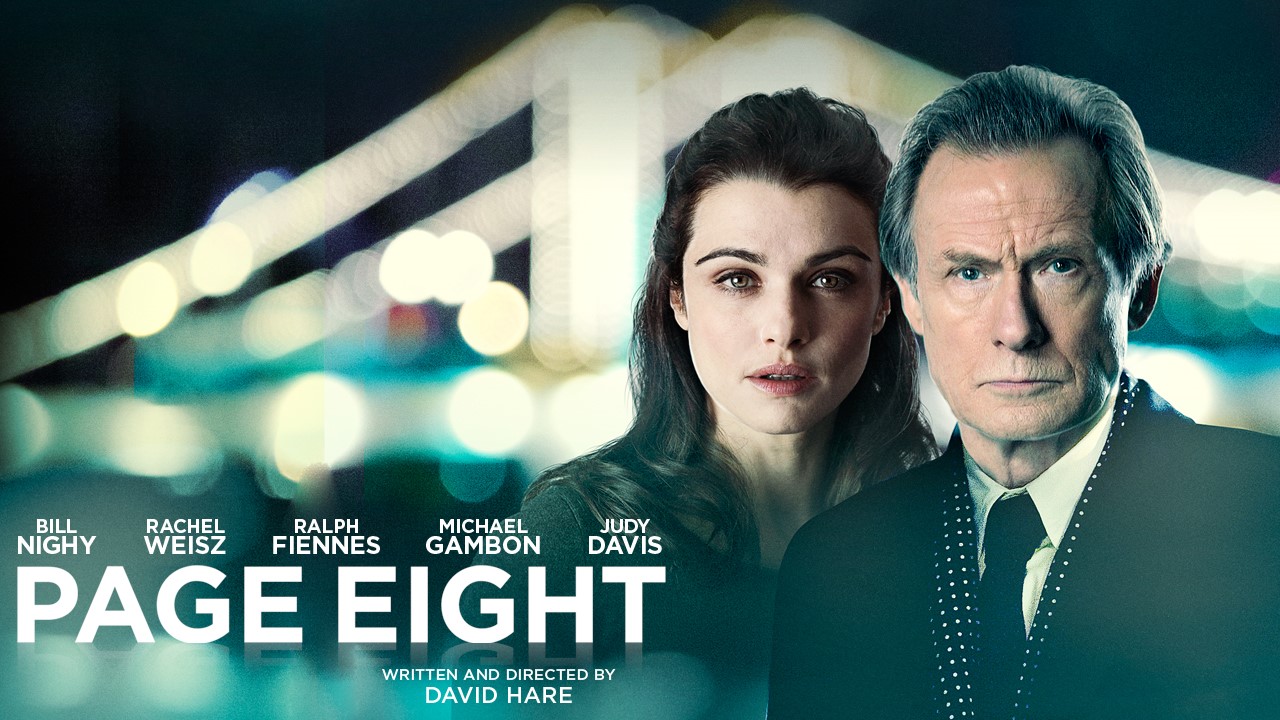Page Eight (2011)

“Page Eight” is a British political thriller released in 2011, directed by David Hare. The film stars Bill Nighy, Rachel Weisz, Ralph Fiennes, and Michael Gambon, and it tackles the world of espionage, politics, and moral dilemmas. Set in the backdrop of the British intelligence service, MI5, the film explores the ethical boundaries of intelligence work and personal loyalties. The movie combines tense moments with nuanced character development, creating a compelling narrative that engages the viewer from start to finish.
The story of “Page Eight” follows Johnny Worricker (Bill Nighy), an MI5 intelligence officer who uncovers a series of complex secrets after the death of his boss, Sir Bernard Hemmings (Michael Gambon). Johnny is forced to navigate through the murky waters of political corruption, espionage, and personal betrayal, especially when he learns of a sensitive file called “Page Eight” that could expose damaging information about the British government. As Johnny investigates further, he finds himself entangled in a dangerous situation where trust is scarce, and the stakes are high.
“Page Eight” features strong character development, particularly through the portrayal of Johnny Worricker. Bill Nighy brings a nuanced performance to the role, embodying the quiet yet determined intelligence officer struggling with his own sense of morality. His character grapples with the complexities of his career, loyalty to his country, and personal values. Rachel Weisz plays Nancy Pierpan, a journalist whose interactions with Johnny lead to deeper revelations about the government and intelligence services. Ralph Fiennes portrays a powerful figure in the British government, adding to the political intrigue. The film’s strong performances bring depth to the characters, making them both believable and engaging.

A central theme in “Page Eight” is trust, or rather the lack thereof. Johnny Worricker finds himself in a world where secrets are essential, but truth is often elusive. As he digs deeper into the mystery surrounding his late boss’s files, he faces difficult choices about who to trust and how much to reveal. Betrayal plays a significant role in the plot, as characters within the intelligence service and the government manipulate each other for personal or political gain. This theme is explored in both professional and personal relationships, adding layers of tension to the story.

Another key theme in “Page Eight” is the exploration of political and moral dilemmas. The film raises questions about the ethics of intelligence work and the boundaries that should exist between government secrecy and public transparency. As Johnny uncovers the truth behind the classified documents, he must confront his own moral compass and decide whether to act on the information he has discovered, knowing it could have far-reaching consequences. The film critiques the power structures within government and intelligence agencies and explores the costs of maintaining national security at the expense of personal integrity.

In conclusion, “Page Eight” is a well-crafted political thriller that effectively combines espionage, intrigue, and moral questions. The film’s intelligent writing, strong performances, and thoughtful exploration of trust, betrayal, and political power make it a standout piece in the genre. Directed by David Hare, the movie delves deep into the complexities of government and intelligence work, while also offering a human story of personal integrity and the struggle between doing what is right and protecting the status quo. “Page Eight” is a captivating film that will leave audiences thinking long after the credits roll.











